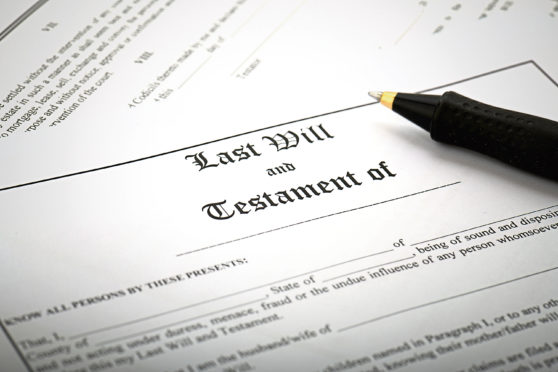Is Inheritance Tax reform on the cards?
On July 5, the Office for Tax Simplification (OTS) published its second report from its review of Inheritance Tax, outlining a number of recommendations to make “substantive aspects of the design of Inheritance Tax simpler, more intuitive and easier to operate”.
The OTS Inheritance Tax Review is a dry topic and not exactly headline–grabbing, though some of the key recommendations certainly are.
It proposes to make significant changes to the Inheritance Tax (IHT) and Capital Gains Tax (CGT) regimes. In just one example, covering lifetime gifting allowances, the proposals put forward are arguably radical and far removed from the review’s primary aim of achieving simplification of the tax regime.
The OTS review also serves as a timely reminder that the UK tax regime is constantly evolving, and changes can and do have a knock-on effect on financial and estate planning.
For example, an individual’s personal circumstances may have changed significantly from when they made a will, such as having children, separating from a spouse or partner or from the impact, good or bad, of a significant change in finances. Changes in the tax regime can also have a big impact on the succession of an estate. With IHT payable at 40% on death, this is an important consideration and careful planning can deliver significant savings.
Capital Gains Tax
The OTS proposes changes to Capital Gains Tax on assets at the date of death, which would significantly impact the sum beneficiaries inherit in certain circumstances where no IHT is currently payable.
Currently, assets are valued for CGT purposes as of at the date of death. This means that if a house was valued at £500,000 at the date of death, there would be no consequence for beneficiaries on the increase in value of that property during the individual’s lifetime (they may have bought that house many years ago when property values were broadly much lower against average salaries). As a working example, c. £12,000 would not be an unreasonable estimate of the original purchase price). Under the OTS proposals this would change, and the increase in the property’s value from the original purchase price paid in say the early 1970s would be the value which is applied in calculating CGT. When sold, that value would be taxed at 20%. That is to say, CGT would apply on the difference between £500,000 and £12,000 at 20%, making a tax bill (which would currently be nil) an eye–watering £97,600.
Lifetime Gifts
In our lifetimes we can gift as much as we wish. However, upon death, if the gift was made within seven years of the donor passing, the value of the gift falls back to their estate for the purposes of calculating the IHT payable on death. The proposal made by the OTS is for that period to be reduced to five years.
Currently, an individual can leave up to £325,000 to beneficiaries without incurring IHT. For a gift exceeding that amount within seven years leading up to death, there may be some IHT relief, and the earlier the gift is made before death, the greater the relief. Currently, if an asset or money exceeding the Nil Rate Band of £325,000 is gifted more than three years before we die, taper relief is available to reduce the IHT payable. It is a percentage reduction in the IHT payable on the amount above £325,000. The earlier the gift, the greater percentage reduction. The OTS has proposed to abolish taper relief. This would remove any tax advantage of gifting early.
At present there are several IHT allowances in relation to gifting, such as the £3,000 annual exemption, and wedding gift exemption. The OTS proposes that these be replaced with a single gift allowance, the level of which is not yet determined. The level of the small gift allowance of £250 exemption may also be revised.
Another valuable allowance is where regular gifts are made from surplus income. That income may come from any source: earnings, rental income, investment dividends, interest on savings, pensions and annuities. As long as the gifts made do not attack any capital and continue to allow you to live as you would normally do, such gifting is not subject to any IHT. It is proposed that this be reformed or abolished.
Agricultural and business clients
Business Property Relief (BPR) can provide up to 100% relief from IHT on farms where diversification is part of the evolved agricultural business. At the moment if more than 50% of the business is involved in trade rather than investments, BPR is available on the whole value of the business. On large tranches of mixed-use farmland this is a valuable IHT relief. The OTS proposes that such businesses should fall under the CGT Relief regime, whereby 80% of the overall business must be in traded activity and not investment activity, businesses may need to revisit their operating structures to ensure reliefs are incentivised.
These are simply recommendations made by the OTS at this point, and government tax regimes can evolve slowly. However, it serves as a reminder to review estate and succession planning regularly to ensure the plan is maximising the benefit of the assets to be left to the next generation, and avoid possible personal and business tax planning pitfalls.
Kirsten McKinnon is a solicitor in Shepherd And Wedderburn’s private client team in Aberdeen

